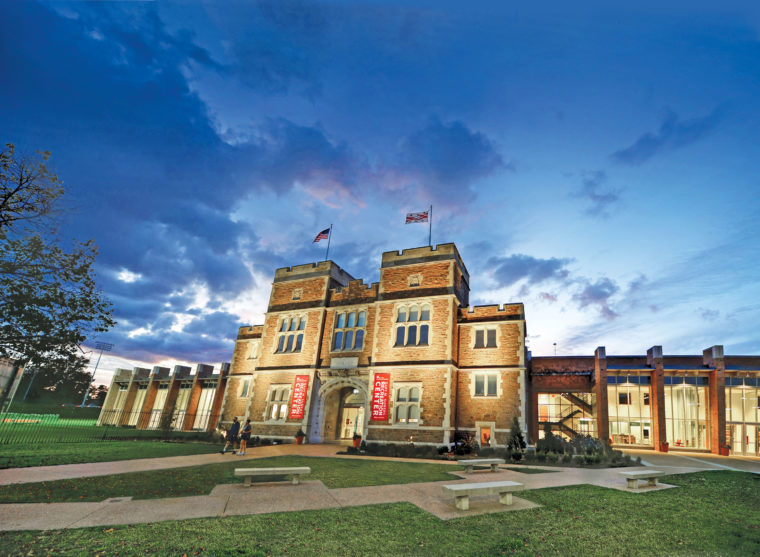Washington University in St. Louis is being recognized nationally for its institution-wide sustainability efforts: the school recently earned a gold STARS rating from the Association for the Advancement of Sustainability in Higher Education (AASHE).
STARS (Sustainability Tracking, Assessment & Rating System) measures and encourages sustainability in all aspects of higher education. The university also landed in AASHE’s top 10 in the category of Diversity & Affordability, earning kudos for the Office of Sustainability’s Environmental Justice Initiative, which strives to catalyze social justice and environmental justice collaborations.
“We strive to be a national leader in sustainability, and this recognition is further evidence of the great work of the Office of Sustainability and the university’s ongoing commitment to this important issue,” said Henry S. Webber, executive vice chancellor and chief administrative officer.
“It’s an exciting achievement that encapsulates all the progress we’ve made to date,” said Phil Valko, assistant vice chancellor for sustainability. “The gold rating provides a good moment to pause and celebrate how far our community has come as we prepare to tackle increasingly ambitious challenges.”
With more than 800 participants in 30 countries, AASHE’s STARS program is the most widely recognized framework in the world for publicly reporting comprehensive information related to a college or university’s sustainability performance. Participants report achievements in five overall areas: academics; engagement; operations; planning and administration; and innovation and leadership.
Unlike other rating or ranking systems, this program is open to all institutions of higher education, and the criteria that determine a STARS rating are accessible to the public. The program is based on credits earned and allows for both internal comparisons as well as comparisons with similar institutions.
Washington University was an early adopter of STARS; in 2011, the school received a silver rating. Since then, the Office of Sustainability has implemented and expanded projects that result in tangible impacts at the university, such as energy conservation, increasing the amount of locally sourced food on campus and the growth of student-led projects.
Another pride point: carbon emissions reduction on campus.
“We’ve continued to grow in square footage — since 2010 the Danforth and Medical campuses have grown by 11.5 percent — yet our carbon emissions have decreased by 12.4 percent,” Valko said. “Our efforts are truly beginning to pay off.”
The gold STARS ranking represents a milestone in the university’s long-term commitment to be a sustainability leader through cutting-edge research, teaching and campus operations. Valko said the number of faculty, staff and students leading sustainability initiatives at the university has grown significantly in recent years. This large network is expected to continue pushing forward on the goals outlined by Washington University’s strategic plan for sustainable operations, including decreasing water use, reducing consumer waste and reducing campus greenhouse gas emissions to 1990 levels.
“Most of the commitments outlined in the strategic plan have a 2020 deadline,” Valko said. “So we are working fast and furiously to continue achieving and exceeding those goals.”
Read more about AASHE’s 2018 Sustainable Campus Index, including the category of Diversity & Affordability.
